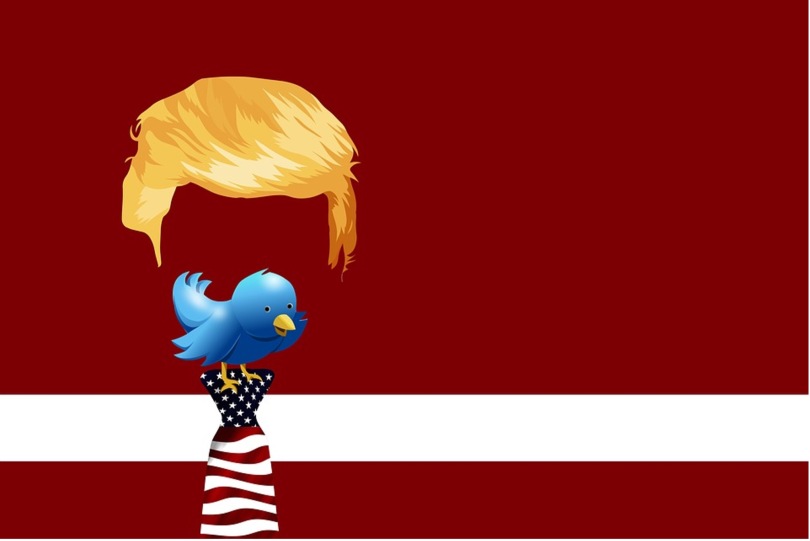InfoSoc’s unbalanced approach has been only partially – very partially – remedied by the Proposal for a Directive on copyright in the Digital Single Market of 14 September 2016 (here). Let us go through its main tenets.
- New mandatory exceptions
The Proposal envisages the extension of the range of mandatory exceptions to:
- “reproductions and extractions made by research organizations in order to carry out text and data mining…for the purpose of scientific research” (Art. 3);
- “the digital use of works…for the sole purpose of illustration for teaching, to the extent justified by the non-commercial purpose…” (Art. 4, dictating further restrictive conditions for the enjoyment of the exception; emphasis added);
- making copies, by cultural heritage institutions, of works permanently in their collections, for the sole purpose of preservation of such works (Art. 5).
These extensions deserve approval, of course, as they ‘upgrade’ to mandatory exceptions that InfoSoc provides as discretionary (Art. 5,2.c, e, and 3,a). But their impact is weakened by their persistent subjection – as all other exceptions and limitations foreseen by InfoSoc – to the barrier of the (in)famous three-step test which allows the copyright holder to oppose in judiciary sitting the actual enjoyment of the exceptions. Moreover, they are equally subject to the criterion of ‘strict interpretation’, also dictated by InfoSoc (confirmed by Art. 6 of the Proposal). Thus, for example, the ‘new’ exceptions under a), b) and c) would not allow either the market exploitation by research organizations of the fruits (reports) of their work, or the chance of Universities and other teaching institutions to edit and publish texts assembling lessons and other fruits of their educational activities.
Now, in all the cases where the public interest to spread culture and information may marry with economic exploitation (at times, however, non lucrative in proper sense: cultural heritage institutions, for instance, are bound to invest their incomes in institutional activities), wouldn’t be wiser – and truly consistent with the proclaimed aim to enhance the diffusion of culture and information – to adopt a mechanism of open paying access, instead than across-the board holding fast to the excludent paradigm?
The Max Planck Institute (MPI) went further and affirmed that data mining exception should apply also to commercial uses “as far as concerns content to which the persons performing the mining have lawful access” (see MPI position paper available here). Data mining relates to new analysis techniques to process large amounts of data, particularly to identify correlations and trends, which can be helpful in different sectors (health, marketing, IoT, etc.). In this regards, as acknowledged by Recital 8 “text and data mining may involve acts protected by copyright and/or by the sui generis database right, notably the reproduction of works or other subject-matter and/or the extraction of contents from a database”. Therefore, a general data mining exception would limit copyright and database rights. In this regard, the MPI says instead that data mining should be regarded as a normal use of a work, not requiring further authorization once a lawful access to the work is obtained. On the contrary, the new exception should be extended to cover data mining for research purposes even in cases of unauthorized access to protected works, i.e. research organizations should be able to carry out data mining without having to acquire access to the protected works.
We agree on that view. We however add that, in light of the concurring collective interests, data mining for commercial purposes should not in any case be subject to exclusive rights but rather to a regime of open paying access: business entities should be able to carry out data mining without having to acquire a general access to the protected works but rather by paying a reasonable fee/compensation.
- Use of out-of-commerce works by cultural heritage institutions
The Proposal provides for non-exclusive licences stipulated by collective management organizations with cultural heritage institutions for the digitisation, distribution communication and making available to the public of out-of-commerce works whose copyright belongs also to right holders not represented by the collective management organization – and this with cross-border effect (Arts 7-8).
The mechanism that empowers cultural institutions to (store and also) publish works ‘out-of-commerce’ is quite precarious, as the rightholders “may at any time object to their works…be deemed to be out of commerce and exclude the application of the licence to their works” (Art. 7,1.c). And this, without any obligation to resume the publication of the ‘forgotten’ works. As matter of fact, in its weakness, the new regime apparently amounts to a tentative compromise solution with the principle, recently re-stated by the CJEU in interpreting InfoSoc, whereby collecting societies cannot by their own initiative (i.e. substituting themselves to authors) authorize cultural institutions to digitise, store, communicate and make available to the public out-of-commerce works (CJEU, 11 November 2016, case C-301/15, Soulier and Doke).
- New rights on press publications against digital uses
The Proposal introduces (Art. 11) a new right, lasting 20 years, in favour of newspapers and magazines publishers to bar third parties (except the authors of the articles) from unauthorized extraction and online exploitation of even short, even very short (‘snippets’), parts of published articles.
This provision represents a ‘hardened’ version of the German Copyright Law which – possibly on the blueprint of an ancient jurisprudence of French origin – instead condoned the extraction and use of ‘imperceptible thefts’ (‘larcins imperceptibles’).
This right is commonly labelled “ancillary”: in truth it is a straight copyright (albeit with a reduced term) since it simply confirms the faculty of copyright holders’ (newspapers and magazine publishers) to grant or deny the authorization to exploit derivative works. Excerpts are indeed ‘reductions’, typically derivative works (hence included in the provision of Art. 12 of Berne Convention): works ultimately similar to the ‘condensed (sic.) books’ traditionally published by the American magazine Reader’s Digest. And the extreme brevity of the extracted text does not per se deny – particularly considering the typical ultra-synthetic mode of today’s digital communications – that the ‘snippet’ can well feature an ‘informational product’ as such apt to be sold and/or draw advertising revenues. Thus subtracted to the publishers of the original article.
However, the basic weakness of the new provision consists, again, in shaping a straight excluding right (just grazed by the research/teaching exception), i.e. remaining stuck to a proprietary approach to facts-assembling (are we introducing copyright on information and facts?). Which (contrast with Feist’s liberal inspiration aside) represents an objective factor of slowdown of the circulation of culture and information.
Once again, wouldn’t it have been wiser to adopt an ‘open paying access’ scheme in dealing with (derivative) commercial journalistic uses of copyrighted materials? For example by sharing part of the actual incomes generated by the derivative uses, if any.
In sum, the trumpet-announced ‘new copyright for the digital age’ is still fundamentally the old closed monad, just renovated with a few narrow windows. This indeed seems the solution adopted also for User Generated Contents (“UGCs”).
- Mandatory cooperation between ISPs and copyright holders on UGCs
The Proposal (Art. 13) tries to regulate UGC platforms. It imposes ISPs to “take measures to ensure the functioning of agreements concluded with rightholders for the use of their works or other subject-matter or to prevent the availability on their services of works or other subject-matter identified by rightholders through the cooperation with the service providers”.
As regard the imposition of agreements concluded with rightholders for the use of their works the Proposal is justified as it compensate copyright holders by placing on ISPs the burden of the unauthorised use of protected works on UGC platforms (which ISPs monetize), possibly by sharing part of advertising revenues.
However, the Proposal raises some concerns as it seems – again – dictated exclusively by the tentative of expanding the copyright scope. First, it is not coordinated with E-Commerce Directive and its safe harbour provisions: who are the ISPs concerned? What about “passive” ISPs and the ban of monitoring obligations on the net? In fact, a general obligation to prevent the availability on their services of works or other subject-matter identified by rightholders through the cooperation with the service providers should be imposed exclusively on “active” providers and should be carefully intended as a exception of the net neutrality principle.
Second, albeit the copyright scope is extended over the e-commerce safe harbours, there is no attempt to expand and adapt the existing framework of copyright exceptions to the online environment. And this despite the fragmented and restrictive implementation of InfoSoc’s exceptions list. This is particularly the case of those exceptions that could better fit online uses, i.e., quotation right (Infosoc Art. 5,3.d), parody (Art. 5,3.k) and incidental inclusion of works in other materials (Art. 5,3.i). In most cases restrictively transposed into national laws (where implemented). In other words, the formalized obligation to monitor UGC platforms is not balanced by any legal tools to safeguard new fair uses deserving areas of freedom. Additionally, online monitoring programs used by copyright holders – that would in fact be supported by the Proposal – can difficulty distinguish “fair” uses. Thus, it should have been advisable at least imposing to Member States to fully transpose all InfoSoc exceptions without reducing their scope. With no need to recall what already observed about the three-step test and the need of adapting it as a balancing criterion rather than an exclusive restrictive mechanism.
- Fair remuneration in contracts of authors and performers
An innovation that deserves full approval is instead the modified regime of contractual relations authors-publishers that allows the former to request not only an improvement of the level of royalties previously agreed upon, but also (read Art. 14.1 and 2, in functional connection with Art. 15), a fair share of the revenues from the ‘other’ sources of income, i.e. advertising, commercial offers, public representations, etc. In case of disagreement, the dispute author/publisher might be entrusted to ADR (Art. 16).
Realistically, though, the chances to achieve such revisions will depend on general agreements stipulated by collecting societies and publishers’ associations – ultimately, by said societies and the major ‘platforms’.
However, this provision is of high systemic relevance, as it allows alterations of the contractually agreed balance of the parties’ interests beyond the classical boundary of exceptional/unforeseeable new supervening circumstances of dramatic economic impact. And, above all, it fills a manifest lacuna of the InfoSoc Directive, which, as hinted above, is missed: the chance of a regulatory support of new ‘business models’ of dissemination of the works associated with the advent of the Internet and digital technology. Models often characterized by no payment obligation for the user for the enjoyment of single works disseminated online, and where the commercial revenues stem in whole or in part from advertising and the sale of various services and other similar sources. Hence, InfoSoc failed also to defend the legitimate rights of authors to obtain their slice of the pie of these other commercial revenues however stemming from the exploitation, direct or indirect, of their works – especially vis-à-vis ‘free’ online distribution models.

